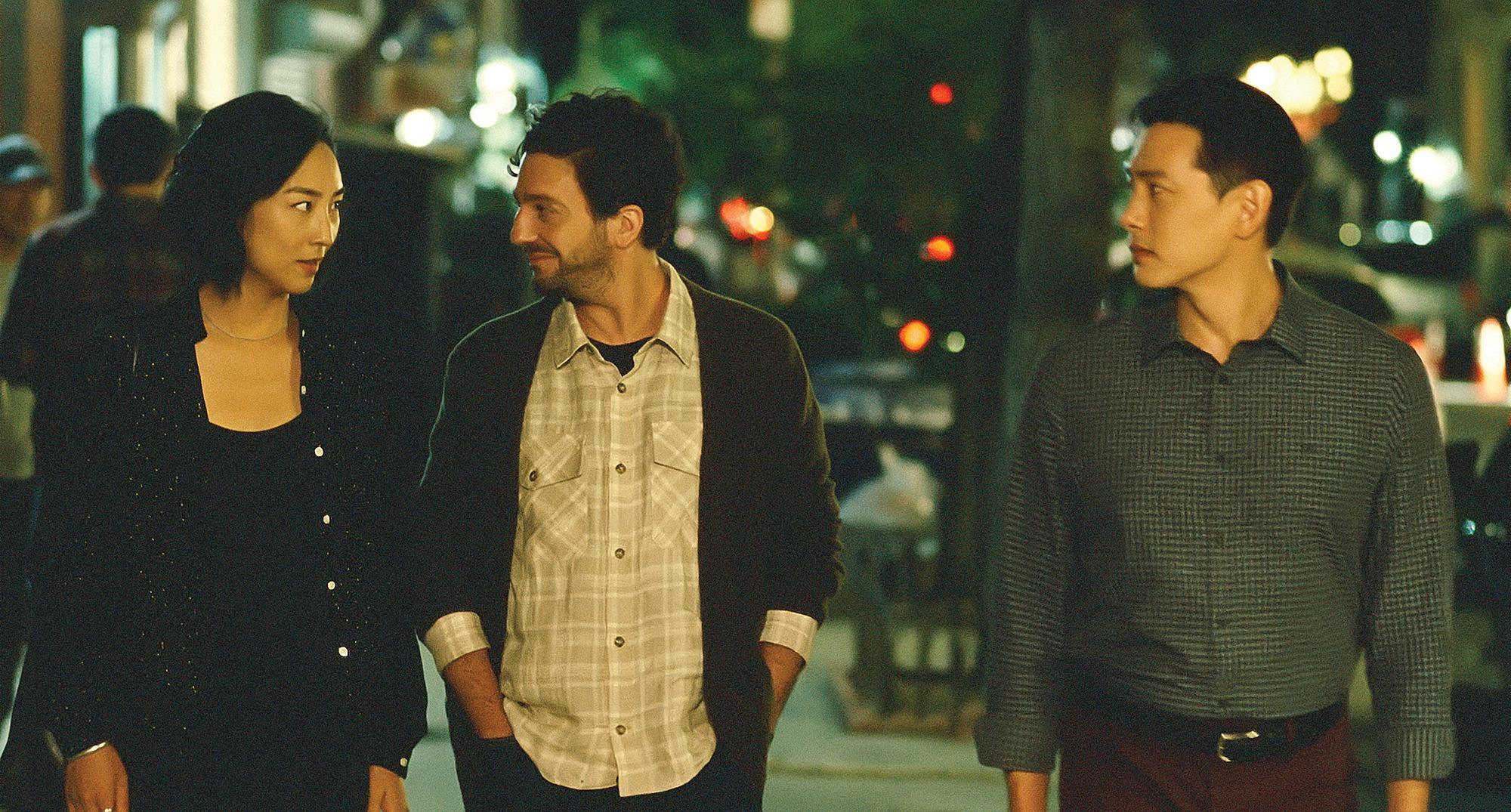 Past Lives, written and directed by Celine Song. Starring Greta Lee and Yoo Teo. USA/South Korea, 105 minutes, IIA. Opens Aug 24. (PHOTO PROVIDED TO CHINA DAILY)
Past Lives, written and directed by Celine Song. Starring Greta Lee and Yoo Teo. USA/South Korea, 105 minutes, IIA. Opens Aug 24. (PHOTO PROVIDED TO CHINA DAILY)
Playwright Celine Song was born in South Korea and immigrated to Markham (outside Toronto) when she was around 12. Later, she studied playwriting at Columbia University in New York, where she currently lives with her American novelist husband. In her filmmaking debut, Past Lives, Song mines her own life to craft a romantic drama about destiny, regret, commitment and the what-ifs that follow us around. The film was one of this year’s Sundance darlings, and it’s easy to see why.
Past Lives is the kind of movie that attracts adjectives such as exquisite, lyrical and soulful, words that, for many, translate as slow, obtuse and self-involved. How you read it will depend entirely on your tolerance for restrained romantic yearning as a state of being. There’s no denying Song’s refined storytelling, though there’s a distant undercurrent, a clinical coolness, to the film that gives it an observational tone. Song’s observations may be acute, but they remain on the outside looking in.
Song plays out what is essentially a love triangle drama in three parts. Part One begins with Nora and Hae-sung as a couple of school kids in Seoul, sharing an unusually tight bond. They are separated when Nora’s family emigrates. Part Two sees Nora and Hae-sung as digital pen pals, constantly chatting via Skype after reconnecting on Facebook (how very 2000s!) 12 years later. Finally, they meet in person in Manhattan, for the first time in over 20 years. Nora arrives with her husband, Arthur (John Magaro, The Umbrella Academy), a Jewish writer she met at an artists’ residency in Montauk.
 Past Lives, written and directed by Celine Song. Starring Greta Lee and Yoo Teo. USA/South Korea, 105 minutes, IIA. Opens Aug 24. (PHOTO PROVIDED TO CHINA DAILY)
Past Lives, written and directed by Celine Song. Starring Greta Lee and Yoo Teo. USA/South Korea, 105 minutes, IIA. Opens Aug 24. (PHOTO PROVIDED TO CHINA DAILY)
The couple of days Nora and Hae-sung spend getting to know each other again — even though they already do, intimately, in many ways — will recall any number of great fleeting romances: Richard Linklater’s Before Sunrise most prominently, but also Woody Allen’s Manhattan (Song makes no attempt to mask the visuals of that one), or even David Lean’s classic 1945 Brief Encounter, the prototype of the subgenre. That said, Song’s resistance to the big romantic gesture is, ironically, the film’s biggest weakness. In being so emotionally measured and contrarian toward Hollywood rules, the film that, at the outset, looked like it was going to soar ultimately lands with a thud. The long dialogue-free stretches of Nora and Hae-sung gazing into each other’s eyes tip over into creepy a couple of times, and the emotional veracity Song works so hard to create too often comes into conflict with the flowery verbosity of her characters.
Still, Song’s film has a lot going for it. It’s deceptively simple in its execution but touches on a number of ideas about the nature of love, the malleability of memory and the ability of the latter to impact the former. The time jumps in Past Lives give us, as well as Nora and Hae-sung, the scope to reconsider what we know as well as what we think we know about their emotional truth.
Past Lives is as much about the what-ifs as it is about accepting our choices and teaching ourselves to enjoy the moment and not fixate on what might have been. It’s also about the vagaries of affection. Arthur quickly — and easily — comes to feel superfluous in his marriage because he can’t match Hae-sung’s good looks or his innate cultural understanding. Credit to Song for making Arthur behave like a grown-up who voices his insecurities rather than falling into Hollywood jealousy traps that generate drama for the sake of drama rather than tell us something about humanity.


